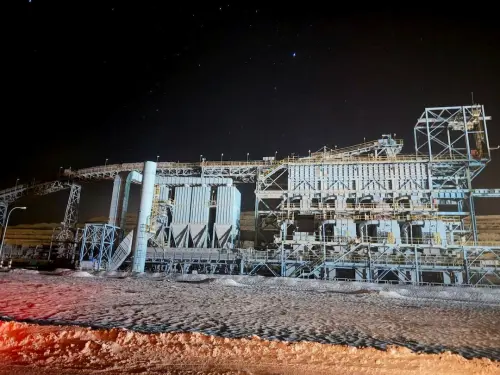Chile's power grid and major copper mines began to gradually restore operations on Wednesday morning following a significant outage that affected the world's top producer of copper. The outage, triggered by a transmission line failure in northern Chile, caused a widespread blackout across the South American country, impacting major mines and global metal markets.
In an early morning update on Wednesday, Chile's National Electricity Coordinator (CEN) reported that over 90% of residential power had been restored, although some cities were still experiencing intermittent outages. Interior Minister Carolina Toha expressed concern over the incident and its implications, highlighting failures in safety nets and power stations during restoration efforts.
The outage was traced back to energy distributor ISA Interchile, a subsidiary of Colombia's ISA and owned by state oil company Ecopetrol. ISA Interchile stated that it was investigating the outage's cause, citing malfunctions in electronic and software protection systems that led to a high-voltage line disconnect and subsequent grid shutdown.
Toha lifted the official state of emergency and curfew imposed since 10 p.m. on Tuesday, stating that around 220,000 users, primarily in the north, were still without power, down from a peak of 8 million affected homes.
Major copper mines, including Escondida, controlled by BHP, and facilities owned by Anglo American, Codelco, and Antofagasta, started to resume operations on Wednesday. Codelco confirmed that all its divisions were gradually recovering operations, with a focus on assessing the impact on production plans and prioritizing recovery efforts.
Santiago's subway service announced plans to resume operations on most lines and stations.
